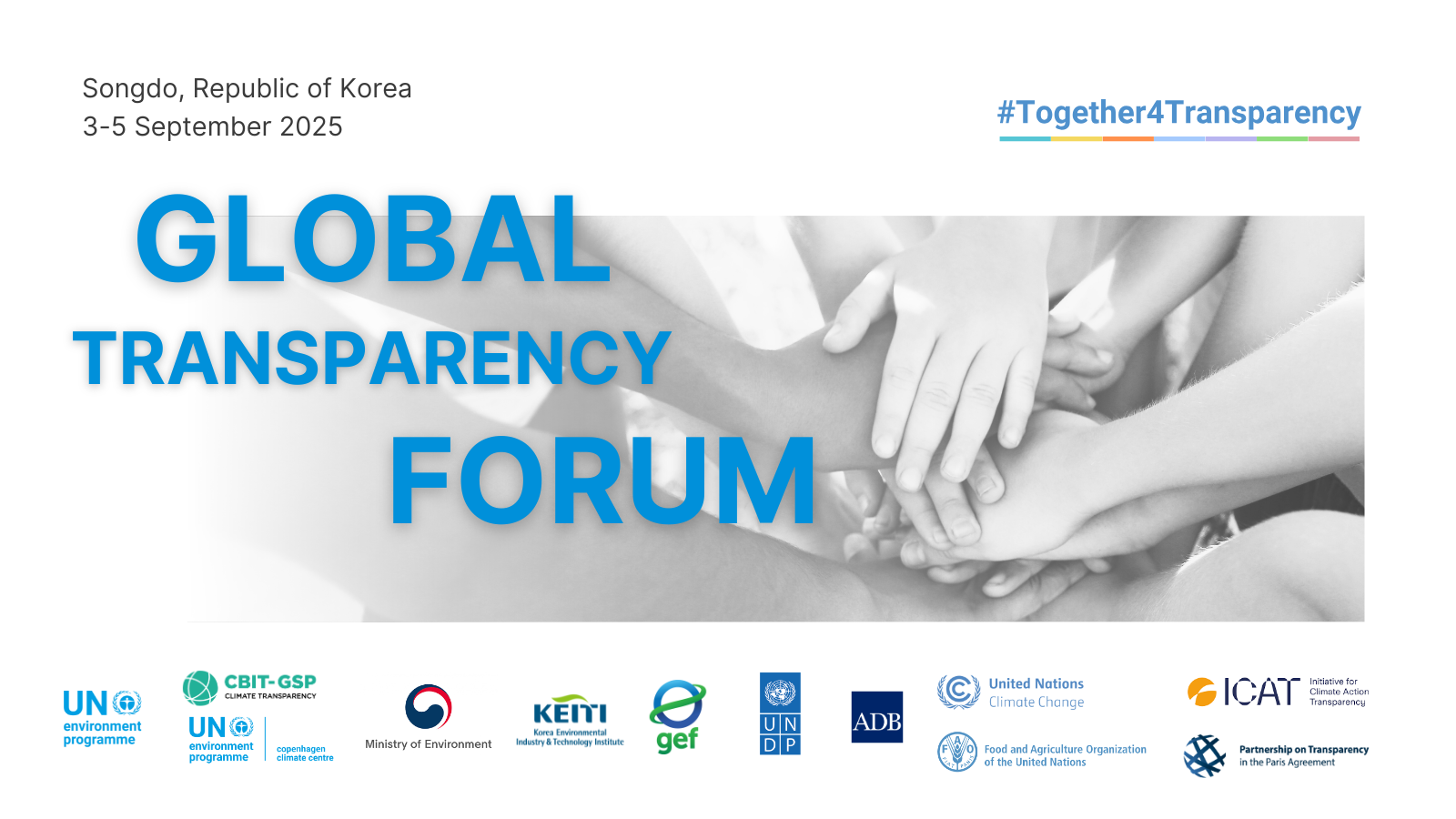The opening and the High-Level Segment of the Global Transparency Forum will be accessible via Zoom here. The remainder of the Global Transparency will be in-person only.
Background
The 2024 milestone of the first Biennial Transparency Reports (BTRs) marked the operationalization of a more robust and accountable climate regime and a pivotal moment for countries to reflect on progress, identify gaps, and generate data-driven insights. The information, lessons, and trends emerging from the BTRs offer a critical evidence base to inform more ambitious, realistic, and implementable climate targets as prepare their next Nationally Determined Contributions (NDCs).
While the BTR and NDC processes are strongly interlinked, countries' processes for completing the two documents are often not well aligned and are implemented as separate workstreams. Such linkages are essential for ensuring that countries’ climate action plans are informed by robust, data-driven insights, genuinely national development priorities.
To this end, the global climate transparency partners; the Global Environment Facility (GEF), the Capacity-Building Initiative for Transparency - Global Support Programme (CBIT-GSP), the Initiative for Climate Action Transparency (ICAT), the Partnership on Transparency in the Paris Agreement (PATPA), the United Nations Environment Programme (UNEP), the Food and Agriculture Organization of the United Nations (FAO), the United Nations Development Programme (UNDP), and the United Nations Framework Convention on Climate Change Secretariat (UNFCCC) are jointly organizing, the second Global Transparency Forum to provide a dynamic and inclusive space for countries, development partners, and transparency practitioners to take stock of progress made thus far, exchange experiences, reflect on lessons learned from the first BTR submissions, and explore how transparency efforts can effectively inform the development of NDCs 3.0. The Forum will also serve as a platform to strengthen partnerships, share emerging good practices, and identify concrete opportunities for enhancing support and collaboration to reinforce the implementation of the Enhanced Transparency Framework. The Forum will convene a dedicated high-level event, including the incoming and outgoing COP Presidencies to create momentum around these critical processes for climate ambition and action in the lead up to COP 30 in Brazil.
Building on the success of the first Global Transparency Forum, the 2025 Forum aims to deepen the dialogue and collaboration among countries and partners. The Forum is hosted by the Government of the Republic of Korea, through the Ministry of Environment. Participants of the Forum will include both transparency practitioners and staff involved in national NDC processes, as well as support providers, multilateral development banks and GEF implementing agencies. The Forum will include plenaries and break-out sessions to provide ample space for deep-dive discussions in various areas related to the BTR and NDC processes.
Objectives
The Global Transparency Forum will strengthen the implementation of the Enhanced Transparency Framework (ETF) and support the development of more ambitious and actionable Nationally Determined Contributions (NDCs 3.0) by fostering peer learning, dialogue, and collaboration among countries, experts, and partners involved in climate transparency.
The specific objectives of the Global Transparency Forum are as follows:
- Provide a platform for developing country Parties to exchange lessons learned from preparing their first Biennial Transparency Reports (BTRs) and engaging in the Technical Expert Review (TER) process with a view to collectively advance transparency improvement strategies for the timely submission of the second BTRs.
- Discuss how national transparency efforts can inform NDC updates and help drive the implementation agenda, including mobilizing climate finance, ensuring transparency contributes to enhanced climate action.
- Explore strategies for transitioning from ad-hoc reporting to institutionalized, government-led transparency systems, with a focus on sustainable data collection, capacity building, and legal frameworks.
- Strengthen collaboration among government officials, international organizations, and transparency support providers to advance the transparency agenda.
In addition to the above, the key recommendations from the Forum will be summarized in a Policy Recommendations/Roadmap and outlining actionable steps for countries on improving their BTR and NDC processes.
